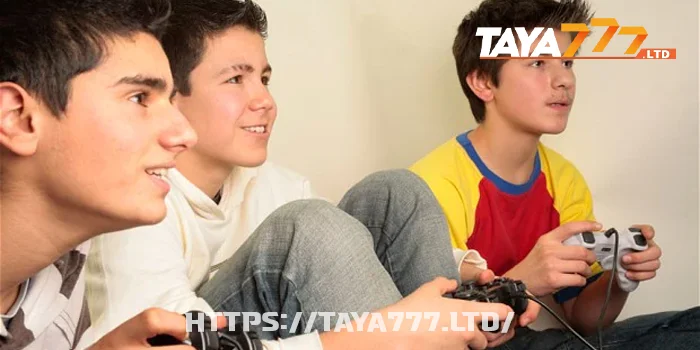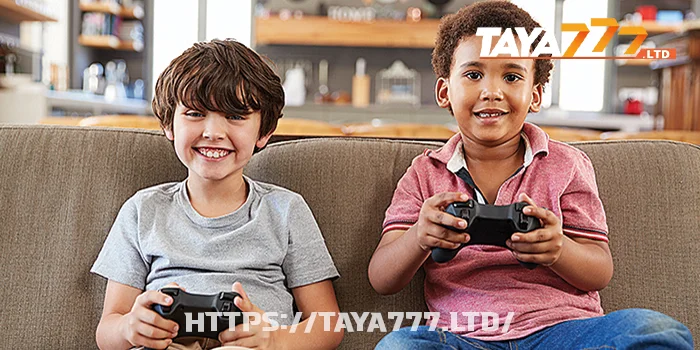Teaching Responsible Gaming to Kids: A Guide for Parents

As the gaming world evolves, so does its impact on younger generations. Educating children and teens about responsible gaming is critical for fostering healthy habits, ensuring online safety, and preventing problematic behaviors. Parents play a vital role in teaching these values, equipping their children to navigate gaming responsibly.
Why Educating Children and Teens About Responsible Gaming Matters

The Growing Influence of Gaming and Betting on Young Minds
With the rise of esports and online betting platforms, young people are increasingly exposed to gaming culture. While these platforms can provide entertainment and social interaction, they can also pose risks if not approached responsibly.
Potential Risks of Irresponsible Gaming and Gambling
- Psychological and Financial Impacts: Excessive gaming or gambling can lead to addiction, financial losses, and emotional distress.
- Social and Academic Consequences: Poor time management due to overindulgence in gaming can disrupt relationships and academic performance.
Parents can mitigate these risks by understanding the importance of responsible gaming habits.
Key Principles of Responsible Gaming for Kids and Teens

Understanding the Basics of Responsible Gaming
Responsible gaming involves setting limits, making informed decisions, and balancing gaming with other responsibilities. It’s vital to instill these principles early on.
Identifying Age-Appropriate Discussions on Gaming and Betting
- Younger Children: Introduce gaming as a fun activity, emphasizing the importance of rules and moderation.
- Teens: Engage in deeper discussions about risks, such as betting odds and financial responsibility. This guide to selecting the best esports betting platform can help teens understand safe practices when exploring esports-related interests.
Tips for Parents: Educating Children and Teens About Responsible Gaming
Setting Clear Boundaries and Guidelines
Establish household rules for gaming, such as screen time limits and budget restrictions. Tools like parental controls can also help monitor gaming activity.
Encouraging Open Communication
Create an environment where children feel comfortable discussing their gaming experiences. Open dialogue allows parents to address concerns like exposure to inappropriate content or peer pressure.
Promoting Healthy Gaming Habits
- Time Management and Gaming Schedules: Teach children to prioritize tasks, balancing gaming with school and other activities.
- Balancing Gaming with Other Activities: Encourage hobbies and physical exercise to maintain a well-rounded lifestyle.
Leveraging Educational Initiatives for Safer Betting
Tools and Resources for Teaching Responsible Gaming to Kids
Utilize resources from responsible gaming organizations and platforms like TAYA777 to provide age-appropriate guidance. Articles such as “Responsible Betting: Essential Guidelines for Every Bettor” can provide parents with insights on creating safer gaming environments.
Collaborating with Schools and Community Programs
Schools and community groups often offer workshops on digital literacy and online safety, which can reinforce lessons taught at home.
Online Safety Measures for Young Gamers
Teach children to protect their personal information and recognize the signs of fraudulent activity. Encourage them to use trusted platforms, such as those reviewed in “Branded Esports Betting Platforms: Are They Worth It?”.
The Role of Parents in Promoting Responsible Gaming for Teens

Monitoring Gaming and Betting Activities
Stay informed about your teen’s gaming preferences and the platforms they use. Periodic checks can ensure they follow agreed-upon guidelines.
Addressing Warning Signs of Problematic Gaming Behavior
- Behavioral Red Flags: Excessive time spent gaming, neglecting responsibilities, or showing frustration when not gaming may indicate a problem.
- Seeking Professional Help: If necessary, seek guidance from counselors or support groups specializing in gaming addiction.
Engaging Youth in Responsible Gambling Discussions: Best Practices
Using Real-Life Examples to Illustrate Consequences
Share stories of individuals who faced challenges due to irresponsible gaming to drive home the importance of moderation and informed decision-making.
Making Responsible Gaming an Ongoing Conversation
Responsible gaming education should be continuous. Regular check-ins allow parents to adapt their approach as children grow older and encounter new gaming trends.
Final Thoughts: Building a Foundation for Responsible Gaming Habits
Teaching children and teens about responsible gaming is an essential part of parenting in today’s digital world. By setting clear boundaries, promoting open communication, and leveraging resources like those provided by TAYA777, parents can empower their children to make informed and safe gaming decisions.
For further insights into gaming safety and best practices, explore our article on “Time Management Tips for Responsible and Enjoyable Gambling”. Together, we can foster a culture of responsible gaming for future generations.
Copyright Notice : This article is an original work by Teaching Responsible Gaming to Kids: A Guide for Parents It follows the CC 4.0 BY-SA copyright agreement. For reprinting, please attach the original source link and this notice.Original article link : https://taya777.ltd/post/article/teaching-responsible-gaming-to-kids-a-guide-for-parents
Frequently Asked Questions
PAGCOR generally regulates gaming activities in the Philippines and issues the license to operate a gaming activity. Thus, the legal/regulatory framework governing gambling primarily consists of rules and regulations promulgated by PAGCOR.
Philippine online casinos face significant challenges such as ensuring robust cybersecurity, preventing fraud, and maintaining regulatory compliance.
Cybersecurity:
With players joining from worldwide, online casinos must safeguard sensitive data and user accounts against cyber threats. This involves using advanced encryption and secure network setups to protect data transfers.
Fraud Prevention:
Online platforms are prone to digital fraud, including bonus abuse and automated cheating. Employing AI and machine learning helps detect suspicious patterns and secure the integrity of games.
Regulatory Compliance:
Online casinos must adhere to local and international gambling regulations. This includes securing licenses, passing audits, and ensuring game fairness, crucial for legality and maintaining player trust.
Transaction Security:
Monitoring transactions to prevent theft and ensure their integrity is vital due to the rapid movement of money online. Secure payment gateways and continuous monitoring help identify and manage fraudulent activities.
Evidence Gathering:
Online casinos need to maintain detailed logs for player activities, transactions, and communications to resolve disputes and assist in legal matters effectively.
Addressing these challenges is essential for the security, fairness, and success of Philippine online casinos, ensuring they provide a safe and enjoyable gaming environment for all players.












